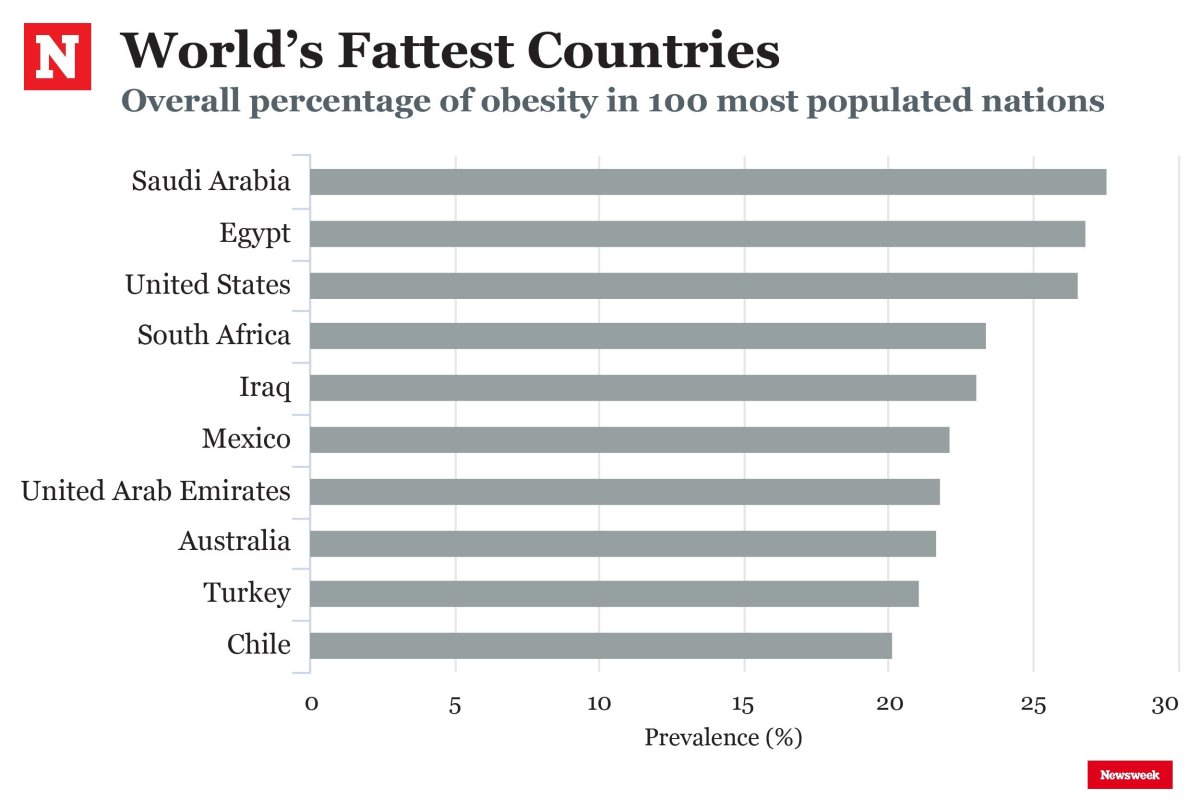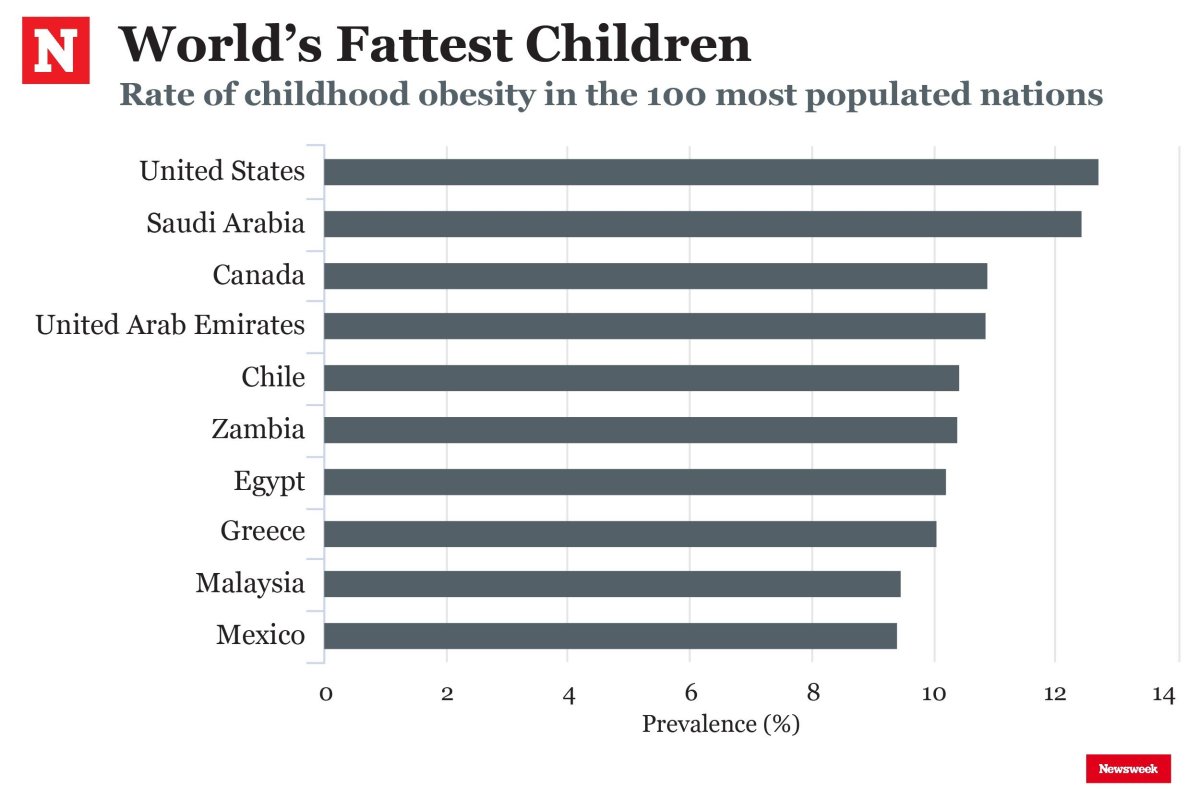
More than two million people across the globe are now either overweight or obese, according to global report studying tens of millions of people. By analyzing data on 195 countries, researchers have found the fattest nations on Earth, with American Samoa topping the list for the proportion of obese people.
When looking just at the 100 most populated countries, scientists found Saudi Arabia, Egypt and the U.S. had the highest obesity levels, with 27.5, 26.8 and 26.5 percent of people respectively having a body mass index over 30 (the criteria to classify a person as obese).
The Global Burden of Disease 2015 Obesity Collaborators looked a data on 68.5 million people to assess body weight trends between 1980 and 2015. The findings, published in the New England Journal of Medicine, provides the most comprehensive and up-to-date view of the ongoing obesity crisis around the globe.
Findings reveal that 2.2 billion people across the globe are now either overweight or obese—this represents around 30 percent of all people on Earth.

The prevalence of obesity doubled in 70 countries since 1980—and has increased in almost all other nations. In total, almost 108 million children are now classified obese, and over 600 million adults. "Although the prevalence of obesity among children has been lower than among adults, the rate of increase in childhood obesity in many countries was greater than that of adults," the authors wrote.
The five nations and territories with the highest rates of obesity are American Samoa, Tonga, Samoa, Kuwait and Kiribati. When only looking at the 100 most populous nations on Earth, these are Saudi Arabia, Egypt, the U.S., South Africa and Iraq.
The U.S. had the highest rate of childhood obesity in the 100 most populated nations, with 12.7 percent of children classified as obese. Saudi Arabia, Canada, the United Arab Emirates and Chile made up the rest of the top five.
The researchers also found four million people had died as a result of excess body weight in 2015—a figure that looks set to increase as more and more people suffer health problems as a result of being overweight or obese.
The report, scientists say, highlights a "growing and disturbing" trend taking place across the globe.

Ashkan Afshin, lead author of the study, said: "Excess body weight is one of the most challenging public health problems of our time, affecting nearly one in every three people. Over the past decade, numerous interventions have been evaluated, but very little evidence exists about their long-term effectiveness.
"Over the next 10 years, we will closely with the U.N.'s Food and Agriculture Organization in monitoring and evaluating the progress of countries in controlling overweight and obesity. Moreover, we will share data and findings with scientists, policymakers, and other stakeholders seeking evidence-based strategies to address this problem."
In a related editorial, Edward Gregg, from the Centers for Disease Control and Prevention, and Jonathan Shaw, from the Baker Heart and Diabetes Institute in Australia, said the study "offers a discouraging reminder that the global obesity epidemic is worsening in most parts of the world."
They said that while there are some limitations to the study, such as the assumption that the risk of obesity outcomes are uniform across populations, the findings show the "magnitude" of the problem facing public health officials around the world.
Uncommon Knowledge
Newsweek is committed to challenging conventional wisdom and finding connections in the search for common ground.
Newsweek is committed to challenging conventional wisdom and finding connections in the search for common ground.
About the writer
Hannah Osborne is Nesweek's Science Editor, based in London, UK. Hannah joined Newsweek in 2017 from IBTimes UK. She is ... Read more
To read how Newsweek uses AI as a newsroom tool, Click here.








